LORDY, LORDY, LORDE
LORDY, LORDY, LORDE
shouts Norman Warwick
When then seventeen year old Lorde rose to the occasion with a tribute performance to the late Kurt Cobaine, at the induction of Nirvana into the hall of fame not everyone was delighted by her presence. Iggy Azalea called the performance as ´inappropriate´ on the grounds of Lorde’s youth, and a reviewer at the New Zealand Herald claimed: ´Kurt would have hated that´.
Dave Grohl and friends, however knew differently. Lorde’s appearance at Nirvana’s induction was a measure of her standing among alt-rock’s grandees, who knew talent when they saw it and welcomed her as one of their own.
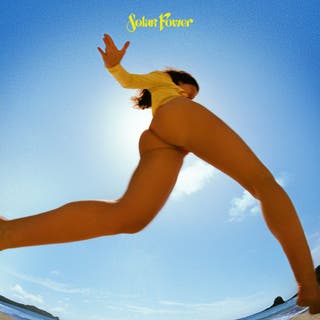
The pose and polish she possessed at seventeen was astonishing and Ella Yelich-O’Connor aka Lorde still only twenty four is a musical grandee herself. The anticipation for her new single, Solar Power, complete with butt-tastic cover art (left) that bears strong echoes of Free’s self-titled second album (or perhaps Funkadelic’s Free Your Mind… And Your Ass Will Follow) – has been palpable. Released to coincide with a solar eclipse, the song is an intimate, gorgeously uplifting and supremely confident summer anthem that exhorts us to ´forget all of the tears that you’ve cried, it’s over,´ might even come to be looked back on as the sunny sound that signalled a seismic change for the better in our battle against covid. In musical terms, though, it recalls George Michael and Screamadelica-era Primal Scream.
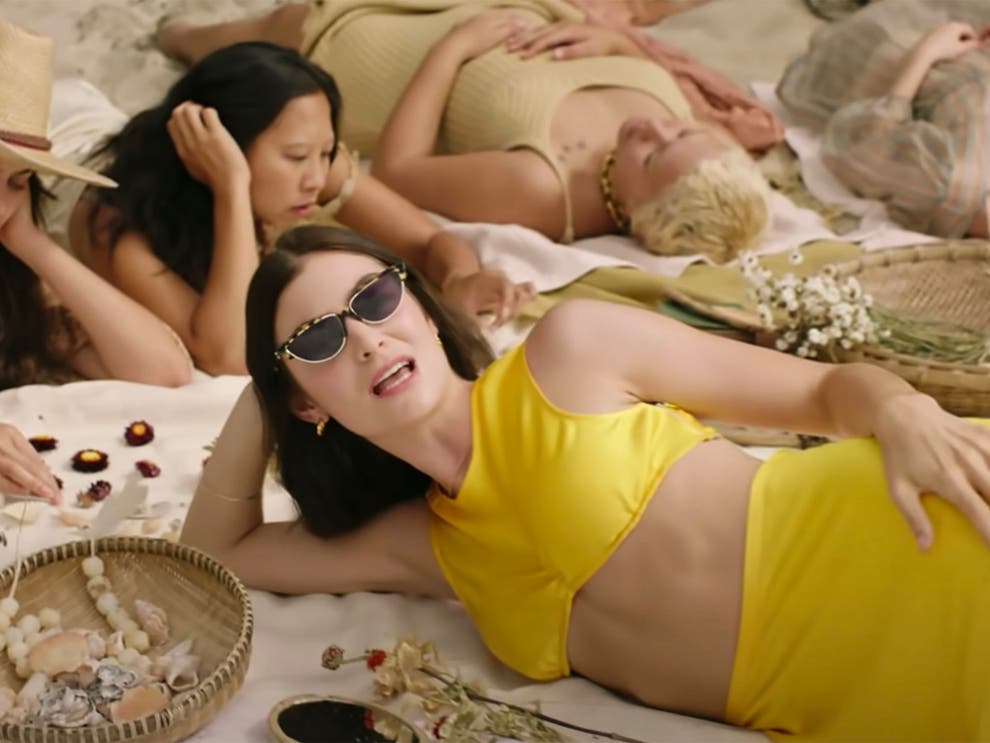
In the accompanying video, we see Lorde on the beach, barefoot, frolicking amongst her friends, Midsommar-style, and sloughing off the tensions of the last year. Those looking to understand the fan worship will find it all there.
Still, Iggy and the odd disgruntled critic aside, the consistent love for Lorde is unusual in an industry in which an artist’s stock rises and falls on social media for all sorts of reasons unrelated to talent, like a Prime ministers popularity ratings. Perhaps it’s because her music is accessible while containing a marked dose of strangeness, and the fact that her song-writing – at once emotionally raw and witty – has a strong multi-generational appeal.
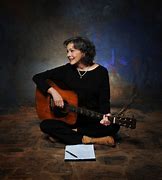
I am a sixty seven year old writer and music lover of catholic tastes but I have become somewhat tangled up in the Baez, Mitchell, Armatrading (and Emmylou Harris and Nanci Griffith, (left, who was lost to us a couple of days ago) music that emanated from my generation. I never thought I would say this but artists of Lorde´s young age, even those like her prepared to take the road less travelled, do not often grab my attention. I rarely bump into them, even at the crossroads, it seems. And yet when the press release for her new single dropped into my e mails, I realised I knew her name and that something, somewhere, some song, some attitude, had left some dust on my shoes.
Other than goggling google there is no social infrastructure here on Lanzarote that would enable me to make chatty enquiries about Lorde, but that lunchtime over a pint and chicken fajitas by that the Jungla Bare by the beach in Matagorda, a non stop music channel of contemporary pop was playing and I knew that my favourite waitress, Emma, took control of ´entertainment´. As she served us I asked her politely if she had heard of Lorde. She thought she might have done, if only by name, but a guy across the floor, probably of my sort of age called across to me that he knew of some of her work and he gave it a thumbs up.
That is nothing of a story really but artists with cross-generational appeal are rare indeed.
Retaining outsider credentials while working within the bounds of pop music is no mean feat either; Billie Eilish has pulled off the same trick in recent years, to even greater applause (Lorde is known to have inspired Eilish and her brother Finneas). As Laura Snapes wrote in The Guardian, ´[Lorde has] always carried herself more like an auteur than a modern pop star´.
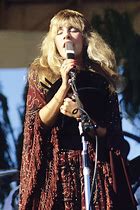
It’s surely significant that, although Lorde talks approvingly of her contemporaries, her main idols are her musical elders, among them Leonard Cohen, Paul Simon, Joni Mitchell and Fleetwood Mac (Stevie Nicks (right) has, in turn, said Lorde would have been the ´third girl in Fleetwood Mac´). Listening to Writer In The Dark (as advised by The Guardian) I would agree with their assertion that Kate Bush must be up there among her heroes, too. Like her forebears, Lorde is a smart lyrical stylist. Single lines such as ´She thinks you love the beach, you’re such a damn liar´, from the house-y anthem Green Light, manage to tell entire stories without condescending to spell them out.
That ability to write a novel in a sentence is certainly one shared by the likes of the earlier-referenced Nanci Griffith.
When Lorde first appeared with the single, Royals. in 2013, she presented a song so perfectly stripped back, it was basically all bones and her future looked frightening. The song shot to number one all over the world, and this teenager with an unusually old soul suddenly had the music industry at her feet. I was probably peripherally aware of that, but wisened old grump that I am I´ve seen and heard so many flashes-in-the-pan sparkle and fizz and fade into nothing and so perhaps put her to the backroads of my mind and decided to simply wait and see. Such situations rarely end well. It’s hard to hold your own in a business that likes to mould women to its own ends; the list of young girls embarking on careers in their mid-teens, and being crushed by the experience, is depressingly long.
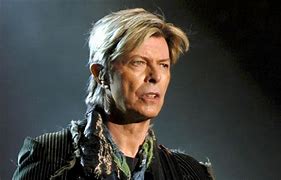
However, the fact that actual deities shower her in praise, David Bowie (left) 9I described her music as like ´listening to tomorrow´, brings its own pressures. Yet Lorde appears to have met these challenges with preternatural levels of zen.
Her precociousness echoed that of the young Taylor Swift, both with her early record deal (Lorde signed to Universal at 13 after a friend’s dad sent them a recording of her covering a Duffy song) and her ability to write exceptional songs from a young age. But where Swift’s determination to succeed was clear, Lorde appears comparatively detached, her vibe suggesting success would more likely be greeted with a shrug than an air-punch.
Her leisurely timetable when it comes to making albums would also suggest a woman working at her own pace and basking in the luxury of time. Of course, it’s not like she’s been sitting around doing nothing – also on its way this year is a photobook, Going South, which documents Lorde’s experience of ´hitching a ride to the end of the world” to see the effects of the climate crisis in Antarctica. But while other artists indulge the desire to keep up a steady flow of content, Lorde appears happy to retreat from view. ´I just hibernate for a bit´, she told a New Zealand radio station recently, ´and then I pop back out with a brand new universe.´
Her approach, which also extends to ignoring her social media accounts, would suggest that keeping the world at arm’s length can do wonders for a career. Less is almost certainly more.
And she seems to have impressed the crtics with her new album xxx and impressed me, too, with what she had to say to The Guardian when discussing the recording, in a piece with journalist Laura Snapes published on Friday 25th June.
Her third album, Solar Power, released in the summer of this year, has humbler origins than previous releases especially for a songwriter who likes describing inspiration as “divine”. The loose, sunny instrumentation – inspired as much by Crosby, Stills & Nash as Nelly Furtado – mirrors a shift within the 24-year-old, brought about by her acquisition of a dog she says she has to pamper and clean up after.
Solar Power glorifies anything, it is life’s natural rhythms: tides, seasons, the evolution of a feeling, or indeed, canine cogitation. Lorde wanted to reflect how she feels at home in Auckland, where she lives in blissful obscurity. There are hardly any paparazzi; once in a blue moon she pops up on MailOnline, buying a rug. In 2018 she deleted all but a few posts from her Instagram and Twitter and abandoned both. Her greatest joy is contemplating the promise of a long summer day: will she garden? Swim? Fish? She rues spending today’s solstice trapped on Zoom; at home, she would have swum at dawn.
The album’s genesis, she says, “was this feeling of the clothes coming off and the skin being exposed and feeling this playfulness”. Behold the artwork, in which she leaps over the camera, revealing an acute bikini wedgie. “When I first saw it I was like, ooh!” she gasps coyly, raising a dainty hand to her mouth. But it worked. “It felt innocent and free, a little feral, a little spicy.”
The simple life dissolved a little self-seriousness. “Making my first record, I would have rather died than have an acoustic guitar,” she says. “Acoustic guitars were like, bonfires and guys in dumb hats, it was very mid-2000s to me.” She belly-laughs. “And then everything I listened to became guitar music by way of both 2004 and 1976!”
She was too young to enjoy the “bright, forward, shimmery acoustics” of Natalie Imbruglia, Natasha Bedingfield and All Saints first time around. Delving back, she heard “a time of optimism” in this critically maligned era. “‘Take me to my beach’, ‘If you’re fond of sand dunes and salty air’ – all these crunchy outdoor images were so compelling to me, and felt so ripe for a return.” (I hear the Spice Girls’ Viva Forever in it, and am mortified to learn she has never heard it. I send it to her later, and it hits the spot. “Gonna spend some time with this.”) She told her drummer Matt Chamberlain to make his parts “sound like skateboarding”, a sense memory she wanted to channel. She can’t skate, although her teenage friends could.
“I always remember seeing that light come up from the bowl and it being so blue, it’s a very visceral memory.”
This newfound ease does not, however, portend a crusty campfire singalong. She and co-producer Jack Antonoff “still pored over every fucking detail! I’m a maniac, my ears are unparalleled. You can’t get a thing past me.”
Solar Power’s title track and lead single draws on the transformative pleasures of the beach, referencing the buoyant daze of Primal Scream’s Loaded and George Michael’s Freedom 90. (Bobby Gillespie and Michael’s estate gave it their blessing.) It doesn’t reach for the wayward euphoria of Melodrama’s lead single Green Light, but more attainable epiphanies. Some critics called it slight. “I don’t think of Solar Power as a shallow moment,” says Lorde. “It’s still very much a moment of depth and it feels very big to me, it’s just also light and flirty.”
Melodrama was one of the most critically acclaimed albums of 2017. Lorde still considers it a miracle it got made – she and Antonoff, both “young and clueless”, were left alone for two years. “We had taste and feelings but we didn’t really know how to make anything.” Yet it failed to replicate Pure Heroine’s commercial highs. She didn’t seem to care. (In 2018, she said: “If you’re here for the commercial performance of my work you’ll only become more and more disenchanted.”) Nonetheless, her influence has never been louder: the likes of Olivia Rodrigo, Conan Gray and Holly Humberstone have appropriated Lorde’s instantly identifiable sprite-like vocal harmonies. She hasn’t noticed – she doesn’t listen to much contemporary pop – although she’s flattered. “It’s my joy to be patient zero on a harmony virus.”
Solar Power. seems much more intimate than its tumultuous predecessor, centring those trademark vocals in classic pop melodies that summon the Carpenters’ uneasy beauty. While Lorde still thinks of herself “absolutely” as a pop artist, she is “way past being interested in if it’s going to play on the radio or anywhere in a literal pop context. It’ll be interesting to see if this becomes a sound people are interested in because it’s so fucking zany.”
She calls Solar Power joyful and optimistic, but I am struck by its sadness: the laments on celebrity, the climate crisis, wellness culture and time passing; the weighty self-doubt. “I didn’t think it was that sad,” Lorde says, surprised and inquisitive. She cites the prismatic folk song Stoned at the Nail Salon. “That kind of searching, being unsure that I had chosen the right path and feeling lonely, I don’t see those as permanent or even bad emotions. It’s all part of the thing” – life – “to feel that trepidation. Maybe it is sad, but I’m very comfortable in the periods of limbo, or times where I feel afraid or vulnerable.”
Also on that song, she sings of how “all the beautiful girls will fade like the roses”. That relatively recent revelation was “truly the first time that I had entertained the notion that the sexy models on Instagram who made me feel inferior – they too will age”. She shrugs happily. “We’re all on the same bus. At some point we have to get on the bus back.” Contemplating time passing was comforting, she says. “I was old enough to finally think about it. When you’re a kid, you’re immortal.”
She says the record is definitively a product of joy, albeit joy born from the revelations of grief. Which brings us back to her dog, Pearl. In 2018, exhausted from touring and craving stability, Lorde decided to get a dog. “And he would have gold hair, and that would take me somewhere,” she says. “And he did. He was the ultimate tour guide.” He lay under the piano while she learned to write on an instrument for the first time. “To feel this energy that was not being generated by me was really profound,” she says.
Caring for him helped her understand her parents and contemplate her own future children, to consider things “that are greater than my feelings on this dancefloor”, she says, with self-deprecation. “I could have the worst workday ever, but you come home and this being is pleased to see you. You’ve done that right for another day, you know? There was an element of wanting to take my performance scores away from ‘How’s this review?’ I’m not so that way inclined now, but maybe at the time I was a little more.”
After less than two years together, Pearl succumbed to lifelong health issues. Lorde emailed fans to say the loss would delay her new record; the grief was long-lasting. She hasn’t returned to the park where they walked. Without wishing to diminish his life, the scale of her devastation seemed to represent some greater loss. “It was absolutely, you’re right, something bigger,” she says. “It was everything. But I don’t know how much of this I wanna talk about with a journalist.” She chuckles kindly and tries to trace its outline. “Grief is a really transformative force. I’d never experienced it fully like that, and it makes you question everything. It overturns a lot.”
How it has changed her is probably a detail for the next album. “This record is about how precious life is, really,” she says.
She got a sense of it when she fulfilled a lifelong dream to visit Antarctica in February 2019. “The only thing to contemplate there is this raw force,” she says. “It’s as much terror as beauty. You don’t feel welcomed by the natural world – I completely felt like an interloper.” She calls it a spiritual pilgrimage. “It was the middle of summer in New Zealand. Going from the beach and tans to this hostile, cold environment and back to the beach, that whiplash helped set the scene to start writing this record.”
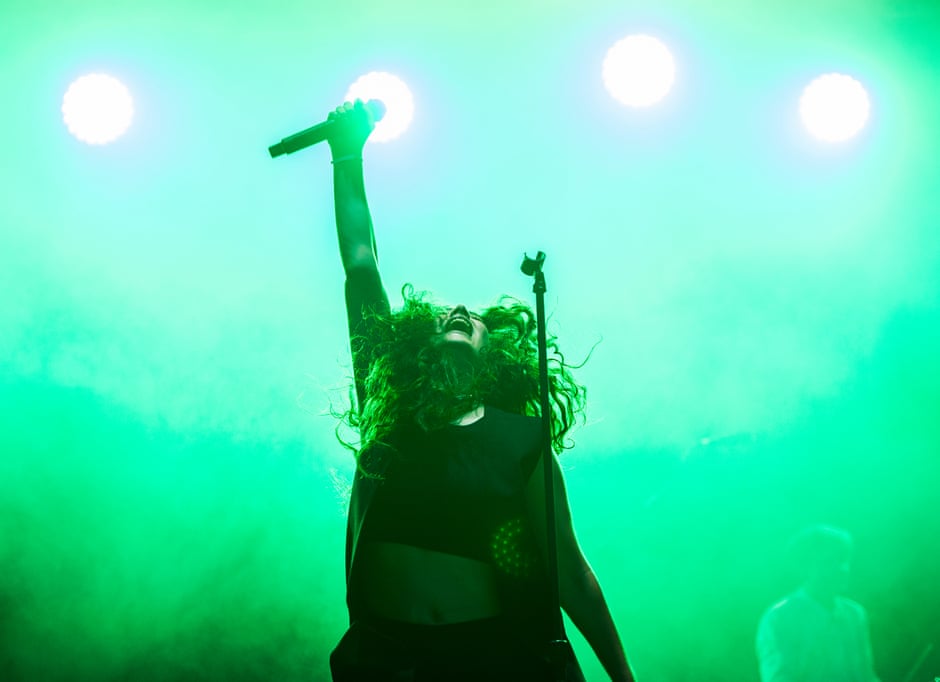
Addressing the natural world on the album “was kind of a grieving process as well as a celebratory one”, she says. Fans are convinced that the video to Solar Power, in which Lorde skips around a rudimentary beach civilisation populated by bored acolytes, is a political comment. Dressed in yellow, she must represent the sun duping braindead kids into ignoring climate warning signs! Or callous politicians ignoring the issue while everyone suffers! The beach will appear in more videos and “reveal its mysteries”, she teases, but the album is not “my big climate change record”. “I’m not a climate activist, I’m a pop star. I stoke the fire of a giant machine, spitting out emissions as I go. There is a lot I don’t know.”
A much-analysed moment from the Solar Power video, in which she hustles the camera past some rubbish, is her “winking at the huge amount of idealism that people direct at where I’m from”, she says. “We have our literal and metaphorical trash on the beach like everyone else.” She won’t be drawn on Jacinda Ardern, a focus of global adulation but a source of frustration for young New Zealanders, who consider her risk-averse. “We’ve got a lot of shit we need to work on.”
She wanted to disabuse anyone of the idea that she had any answers. The album opener, The Path, is set at the 2016 Met Gala, where Lorde steals a fork for her mum, observes “supermodels dancing around a pharaoh’s tomb”, then admits: “If you’re looking for a saviour, well that’s not me.” She says it’s an odd place to start, “but I know enough about how people view me – we’re taught to view famous people as gods now – and I just wanted to dismantle that”.
One song, Fallen Fruit, is a crushed flower-power lament for the spoiled Eden her generation inherited. But that’s the only protest song. She recalls Mark Rylance saying that artists should tell love stories about the climate. “The opposite has been proven not to work,” she says. “I do think these songs are love stories more than anything. But love is complicated.”
The lost flower-children in the Solar Power video and the sad girls in the album’s lyrics mollifying emptiness with weed, manicures and crystals chime with the quote in Lorde’s Instagram bio from Joan Didion’s 1967 essay Slouching Towards Bethlehem, about dropouts and psychedelics in Haight-Ashbury. In isolation, “a return to innocence – the mysteries of the blood – an itch for the transcendental” looks like a statement of artistic intent. In context, it comes from a psychiatrist assessing how romantic movements formed in times of crisis always end in authoritarianism.
Is she suggesting darker times still to come for a generation who have reached for alternatives in the absence of traditional support structures? She’s wary of revealing too much, but “that’s the vibe”, she says coyly. “I read a lot about the dropping-out movement and commune life, the ideological crises people were having then, and felt a lot of parallels with what people are going through now. It’s all gonna become clear later, but it was such a fun, rich zone to be mining.”
Lorde spent most of the pandemic in New Zealand, which was minimally impacted by Covid. “I don’t feel like I’m that tapped into the greater cultural consciousness around it,” she confesses. She has never felt better. “I think it’s getting offline, but I really feel like I’m only just now scratching the surface of my powers, which is a very exciting feeling.”
She quit social media and turned her phone into a “dumbphone” – she shows me the greyscale display, believed to minimise compulsive checking – after she came across the author Annie Dillard’s aphorism: “How we spend our days is how we spend our lives.” She repeats it emphatically. “I was like, I can’t do this for ever, this can’t be it.” Social media was fun for years. “But I think it was altering my neural pathways and homogenising my trains of thought. I was losing touch with my ability to explore an idea at my own pace, which felt like losing my free will at times.” She laughs, baffled. “I was very addicted. To be able to put that aside has put me into such a position of power and fertility and creativity and confidence.”
Over email, I ask if she worries about losing touch, especially making work that touches on generational predicaments. “I actually think falling out of touch is one of the better things, emotionally and creatively, to happen to me in my 20s,” she replies. “I’m aware it’s absolutely a social and economic privilege to do so. I really think people need me to be able to see our world clearly in order to write about it, and I couldn’t do that and remain online.” The work, she says, “can be as rich and personal as it is” because of those boundaries.
She was inspired to get offline after reading the artist Jenny Odell’s How to Do Nothing, a polemic on resisting productivity. She hopes Solar Power will do for fans “what that book did for me, which was to retrain my attention. It was literally walking my dog – 45 minutes twice a day at the local park – and that was so big and transcendent for me.”
When Lorde emerged, articulate teenage pop stars who wrote their own songs were few and far between. Now there are dozens in her wake, from Rodrigo to Billie Eilish. Her own precocity has shapeshifted, evident in how she has enforced normality on her life. “I was just at home for years,” she says of Solar Power’s roots. “It would make me feel vulnerable sometimes, feeling that cut off and that irrelevant, so to speak. But it’s also very powerful, and I can understand that as something that is precious.”

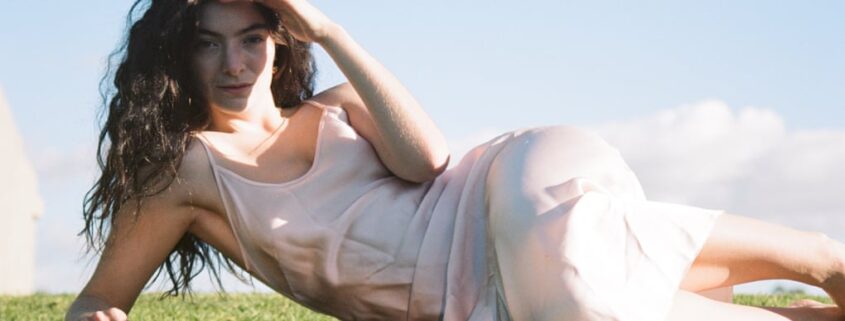


Leave a Reply
Want to join the discussion?Feel free to contribute!